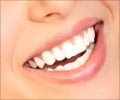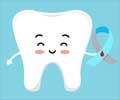- Dental cavities are a common cause of toothache
- They are currently treated using fillings, or in really bad cases, tooth extractions
- A new treatment that is being investigated could stimulate the cells of the damaged teeth to grow and fill up the cavity, simulating a natural repair
A research team from the Dental Institute King’s College London have suggested a possible new treatment for dental cavities in their paper published in the Scientific Reports. The treatment, which has been tested in mice, could possibly bring about healing in a way that could closely replicate the normal healing process in the damaged tooth.
The treatment of the tooth cavity often involves several visits to the dentist. The dentist fills up the cavity with artificial substances like inorganic cement and other fillers depending on the aesthetic requirements of the patient. The ordeal may not end at this. The patient may suffer from repeated infections around the filling. The filling may come out requiring a repeat procedure. The tooth may eventually need extraction.
Possible Alternative to the Use of Fillers for Large Dental Cavities
The research team used three small molecule glycogen synthase kinase (GSK-3) antagonists including tideglusib to repair experimentally damaged mice teeth. Tideglusib is being investigated for its possible use in the treatment of Alzheimer’s disease, a totally unrelated neurological condition that causes memory loss and mainly affects elderly individuals.
The research team feels that since tideglusib is already undergoing testing in human beings (though for a different indication), several aspects like safety would have already been studied, thereby allowing the new treatment to come into the market faster. Collagen sponge is already available in the market, which could further make the process faster. However, this study was conducted on mice teeth, and is still quite some time away before it can be widely adopted for the treatment of dental cavities.
- ’Promotion of natural tooth repair by small molecule GSK3 antagonists’ by Vitor Neves, Rebecca Babb, Dhivya Chandrasekaran and Paul T Sharpe. Scientific Reports 7, Article number: 39654 (2017) doi:10.1038/srep39654
Source-Medindia













